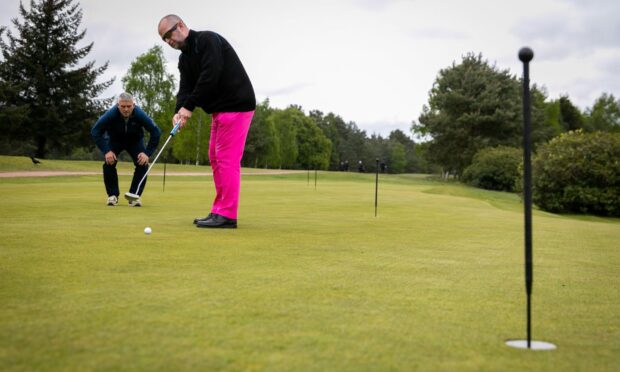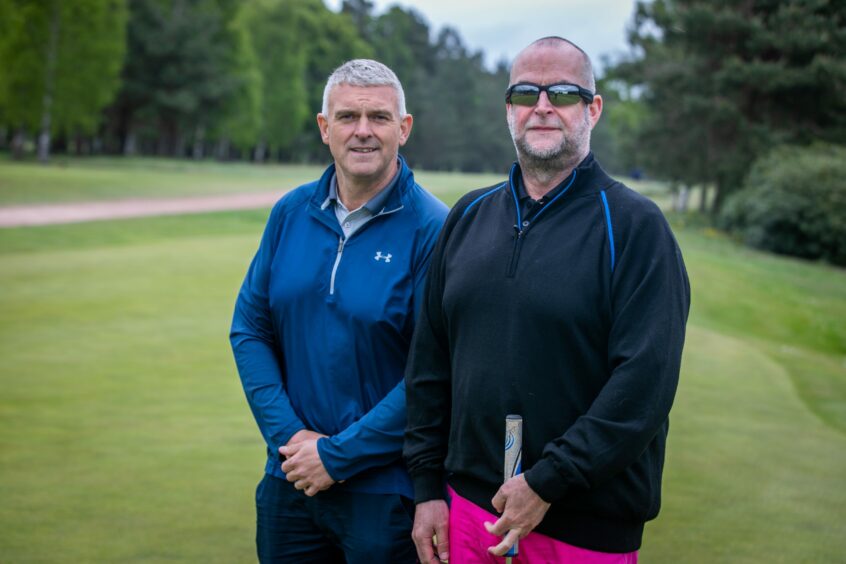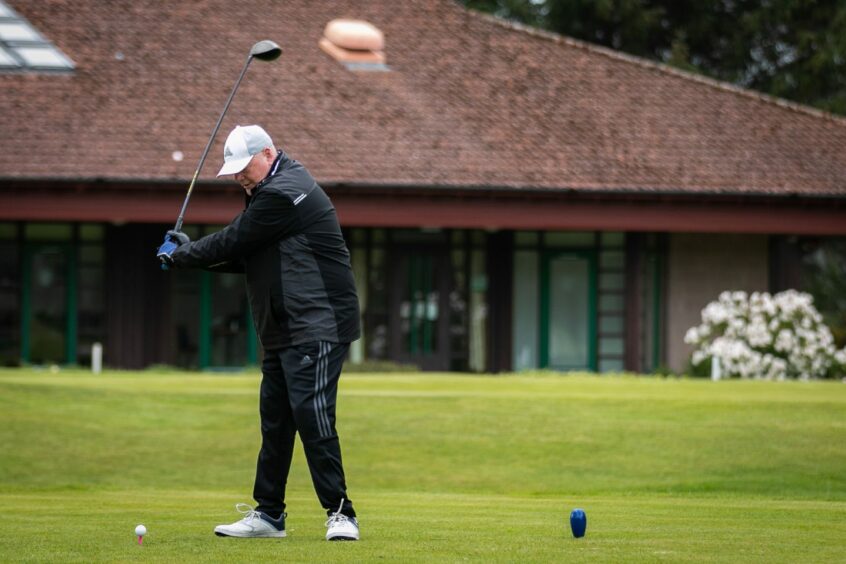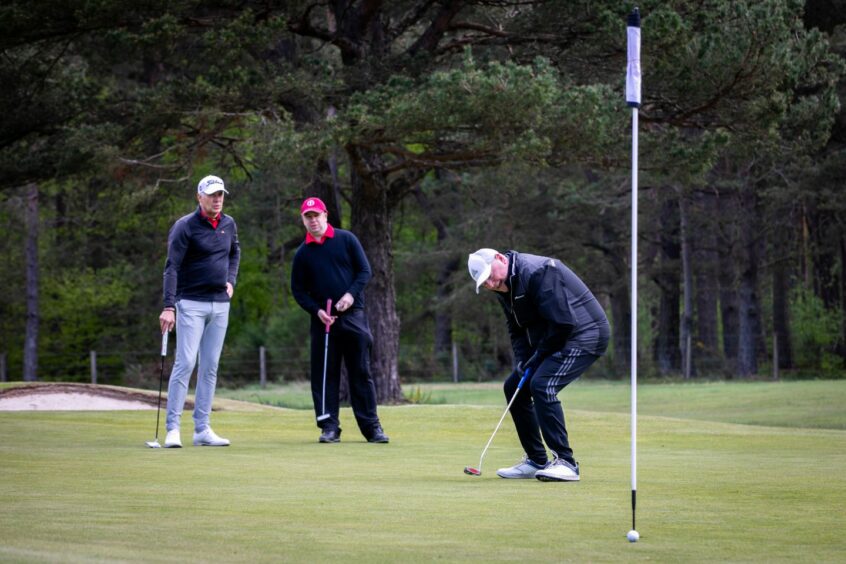“It all started out as an idea in the pub – and that’s where the best ideas tend to come from.”
Jim Gales, the Scottish Disability Golf and Curling chair, has played a pivotal role in transforming the organisation from 30 players based around the St Andrews area to more than 1,100 spread across 20 countries.
Twenty years ago, a desire to create a group for disabled golfers prompted Jim to travel to Canada to learn exactly what it would take.
He said: “We got a fellowship from the Winston Churchill Memorial Trust to go to Canada and basically steal all their ideas.
“We went across and played in a couple of competitions, met a lot of people, got the best ideas and brought them all back to Scotland to become a pan-disability group.”
With the assistance of the R&A, Scottish Golf, the PGA and Sport Scotland, the Scottish Disability Golf Partnership was formed in 2004.
It later became a charity in 2009 and merged with Disabled Curlers Scotland four years ago to become Scottish Disability Golf and Curling (SDGC) and provide year-round sports opportunities for disabled people across the country.
Disability golf gave Jim a chance to travel the world
Jim is blind and competes in the SDGC events with the assistance of his guide Martin Lowe, whose role is “to paint a picture” of the course.
The partnership seems to be working well as Jim won the British Open for the third time at Strathmore last year following previous successes in 2001 and 2008. He will look to defend his title at the same venue this September.
He said: “The big two events are the British Open and the Phoenix Cup – a four-team Ryder Cup style event with Scotland, Wales, England and USA competing at Forest of Arden in August.
“I have played in more than 100 team international and open competitions in 14 countries.
“I have managed to travel the world through disability golf and it has given me plenty of opportunities.”
What a day! Pro-Am at @ladybankgolf Teams of PGA pros, members of Scottish Disability Golf & Curling and media.
Huge thanks to Ladybank for hosting. Course was amazing & an even greater test with its bunker development. @PGANewsFeed #golf #disability #Fife #sport @ScottishGolf pic.twitter.com/76HEh5cFoj— Midas Media (@midasmedia) May 14, 2022
‘Big focus now on the link between mental health and wellbeing’
While the SDGC offers a serious competitive side for those looking to test themselves against fellow disabled golfers, Jim says the camaraderie and support offered to members is even more important.
The 58-year-old, who was born in County Durham and moved to Fife in 1990, said: “We take on anybody with any type of disability and any age. We say physical, sensory or intellectual – anybody who fits into any of those three categories can join as a member. Membership is free.
“There is a big focus now on the link between mental health and wellbeing, but we have been doing that for a long time.
“If you go out for a curling match it is two hours, golf is four hours. If you are playing in a big competition then the rest of the time around that is the social aspect and that is what we really want to push.
“Everybody wants to play well, but you have your good days when you feel you can’t miss a putt and your bad days when you feel every drive is going into the trees.”
More disabled people would benefit from joining the group
SDGC member John Ramsay, from Glenrothes, says being part of the group has given him a new lease of life.
The 52-year-old was diagnosed with Parkinson’s disease seven years ago and was part of a trial who received deep brain stimulation surgery to reduce tremors and other symptoms.
The impact has been massive for John, who joined the SDGC last year after learning about the group online.
He said: “The difference between the medication for Parkinson’s seven years ago and now is massive. I couldn’t play golf back then.
“I was still too shaky and my legs were really bad. I have always loved golf and I never thought I’d get back to playing at all.
“Then I was sent to Western General (in Edinburgh) and I was given a wee machine that goes in my arm and it directs different signals to my brain.
“When you are starting to shake that signal in your brain gets changed to counteract it. It has been fantastic. I was in a trial in the UK, I believe I was one of only five people at the time.
“It has allowed me to get back to golf. I loved playing golf for years and to be able to play again has meant so much.”
Ramsay believes more disabled people would benefit from joining the group.
He said: “It has made a massive impact for me. Everyone has made me feel really welcome.
“I was interested because I was a really keen golfer, but I have taken up the curling well.
“There is a curling match against Canada and I think I may be involved in that one when they come here at the end of the year. Hopefully I’ll also be involved in the return match next year.
“The group is great and it is a wide-range of people with different disabilities and some ex-military guys.
“They are such an upbeat bunch and it is great to spend time with them.”
For more information on Scottish Disability Golf and Curling visit scottishdgc.org.uk




